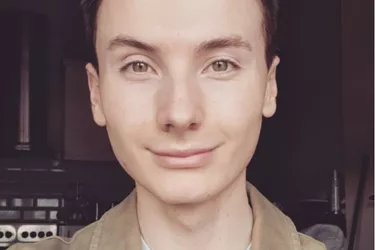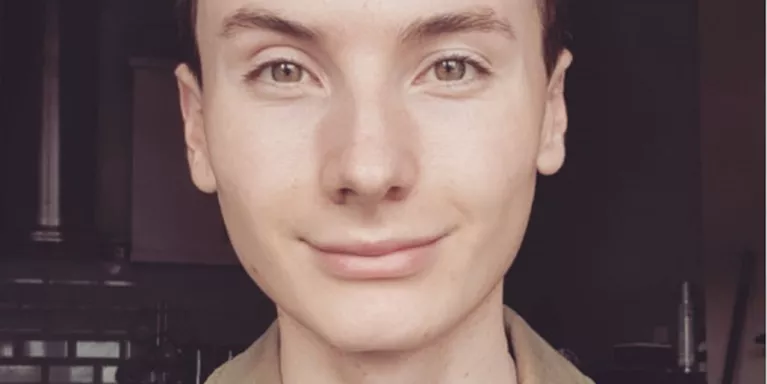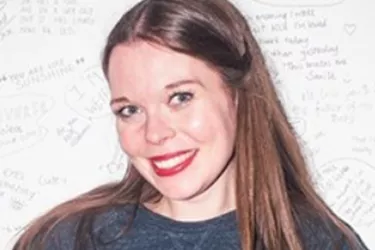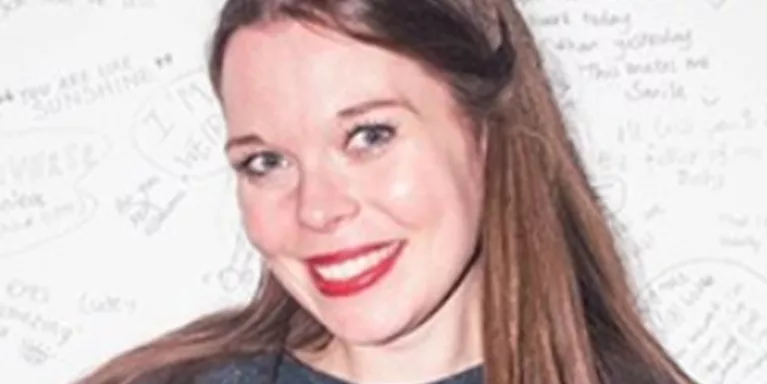Binge eating disorder: it felt momentous to have a calm, ordinary conversation about it
Please note: do not read this blog if you feel vulnerable to triggering issues.
This blog originally appeared on the Time to Change blog. Time to Change was a national campaign run to end the stigma around mental health problems. It closed on 31st March 2021.
Many of you may have seen the Time to Change campaign showing a nervous man attempting to bargain with a fantasy monster. It's meant to show that talking about mental health needn't be terrifying. But, when trying to disclose my eating disorder, I sometimes think I'd rather face the monster.
I suppose my fears about telling people I have an eating disorder come from the stigma I've seen. I know there are too many people out there who don't know or don't believe that eating disorders are actually illnesses.
People mock my nervousness around food. I remember clearly from my school days, students who starved themselves were accused of doing it for 'attention'. Around the same time, the hit song 'Stupid Girls' told us that eating disorders are not only hilarious; they also mean you're an idiot. And we've all heard the comments people make within earshot of perfect strangers who are too thin or too fat. It seems that everywhere I go, people will judge me.
I'm more afraid because I'm not anorexic or classically bulimic. Without a diagnosis, I'm guessing I have Binge Eating Disorder. It's a condition that has only recently been recognised by psychiatrists, let alone the general public. I'm afraid people might just think I'm greedy, that it's not a real eating disorder because everyone overeats from time to time. There is a stigma to face in my own head before I tell anyone.

“But I know the truth is I’ve got a mental health problem.”
But I know the truth is I’ve got a mental health problem. I spend much of the day obsessing over food and have strange and nonsensical rules about what I eat. At mealtimes or any time food is offered, I experience huge anxiety. I dread any event with a buffet. Because I know I’ll eat and I’ll keep eating, and I won’t even enjoy it, but I’ll eat because I feel somehow, I have to. I’ll eat even when I’m feeling full, feeling bloated, feeling pain in my gut, feeling sick.
And a few hours later, the despair will hit. I’ll feel repulsive and swear to never do it again. Then, the next day, that guilt and anxiety from last night’s binge will trigger me to eat an entire loaf of bread between meals. I do it because it’s a distraction. I’ll eat to avoid the stress of what I’m meant to be doing or comfort myself for the stress I can’t avoid. I’m afraid of not eating or eating too little. And now I’m scared of eating at all.
“The first GP I told was clueless.”
I found it difficult even to tell my GP. The first GP I told was clueless and advised me to eat low GI foods. I think he misunderstood; it’s got nothing to do with hunger. I felt discouraged from seeking help, but it was very different when I blurted it out to a different GP in an appointment about physical health problems. She encouraged me to tell her more, and I learnt about the help I could get from an eating disorders clinic and advice on my self-help methods.
Outside of the clinic, I’ve told my boyfriend, my housemates, and my parents. Not all of them understood that well at first. It felt momentous to have a calm and ordinary conversation about it. No one accused me of faking an illness. No one made fun of me or got angry. I’m not sure what I expected! They just made some supportive comments, and I explained things they were confused about. It goes to show, I suppose, that although it may feel like facing a dragon, it’s not as bad as I’m imagining it. I’m not yet fully ‘out’, but it’s a good start.
“It inspired me to really try to talk openly about my condition.”
Two weeks ago, I went to a Time To Change event for the first time, and it inspired me to try to talk openly about my condition. Because the more I do, the more people learn the truth about eating disorders. When people know the reality of a condition like this, their attitudes change. And so maybe one day, people won’t feel the shame and the fear that I do. So I’m aiming to be braver; the more we talk, the easier it gets.
Eating disorders can feel like they’re taking over your life, but there is support available. Visit your GP or contact your local Mind.

Information and support
When you’re living with a mental health problem, or supporting someone who is, having access to the right information - about a condition, treatment options, or practical issues - is vital. Visit our information pages to find out more.
Share your story with others
Blogs and stories can show that people with mental health problems are cared about, understood and listened to. We can use it to challenge the status quo and change attitudes.

















